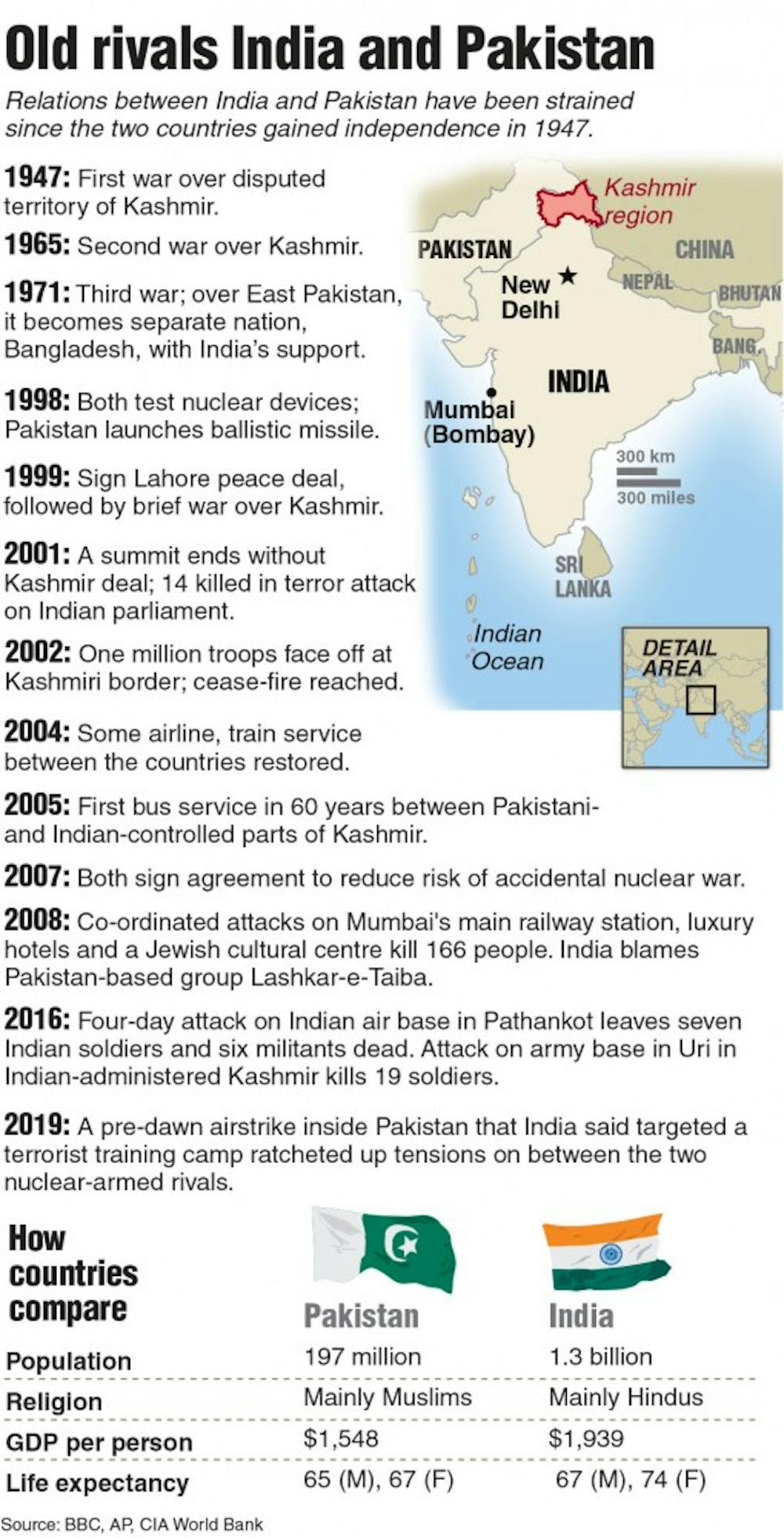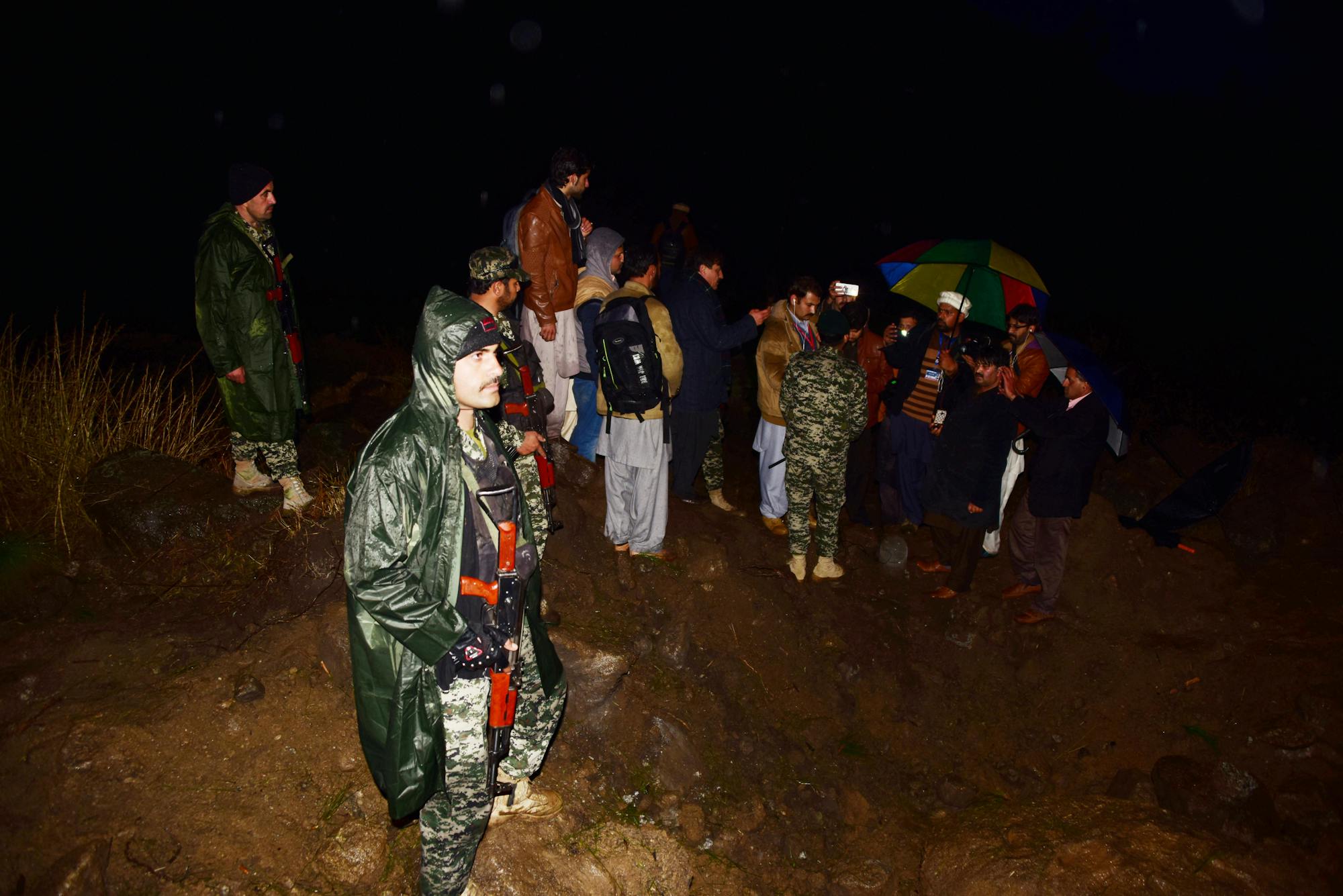ISLAMABAD (TNS) — India launched an airstrike Tuesday on Pakistan in retaliation for a suicide bombing against its troops earlier this month, further heightening tensions between the two nuclear-armed states.
Indian Foreign Secretary Vijay Gokhale said the attack was directed at a militant training camp for Jaish-e-Muhammad, a group that India says carried out a suicide bombing Feb. 14 that killed 40 Indian paramilitaries in Kashmir.
The strike marks the first publicly acknowledged incursion by Indian warplanes over Pakistan since 1971, when the two countries were at war.
Pakistan Prime Minister Imran Khan responded by directing the country's military and people to "remain prepared for all eventualities."
Gokhale said the strike was urgent, citing intelligence reports that determined the camp located about 120 miles north of Islamabad in Balakot was training militants for another suicide attack.
"In the face of imminent danger, a preemptive strike became absolutely necessary," said Gokhale, who added that "a very large number" of militants had been killed in the strike.
Pakistan offered a different version of Tuesday's attack. Maj. Gen. Asif Ghafoor, a spokesman for the country's armed forces, said in a series of tweets that the Indian jets were turned away by the Pakistan Air Force after flying three to four miles into Pakistan.

He said the Indian planes dropped their payloads near Balakot, causing no damage to infrastructure or casualties. He also posted pictures of toppled trees, craters and what appear to be bomb fragments.
Residents in the area said they heard aircraft hovering and five explosions before dawn.
"I heard the loud noise of aircraft followed by loud explosions in the surrounding area by the town," said Manzoor Hussain Shah, a resident of Balakot, who believes the ordnance landed in a nearby conifer forest.
Local police said they were prevented by the army from accessing the area where the bombs landed. Other witnesses said the bombs landed in Jaba, a sparsely populated town near Balakot.
Pakistan's prime minister held an emergency meeting with national security advisers and military and foreign affairs leaders after the raid.
Khan and his advisers said India's incursion was aimed at burnishing Indian Prime Minister Narendra Modi's popularity in the run-up to elections in the spring. They said they would eventually allow journalists to visit the bombing site.
After the meeting, the Pakistani government said through its Twitter account that India "had committed an uncalled aggression to which Pakistan shall respond at the time and place of its choosing."
Tensions have been escalating since a vehicle laden with explosives slammed into a convoy of Indian security forces in Kashmir in the deadliest attack in the region in decades.
India blamed Pakistan for harboring Jaish-e-Muhammad, which has carried out some of the bloodiest terrorist attacks against India. That sparked fear of a new conflict in the volatile region, a terrifying prospect given that India and Pakistan collectively maintain 180 nuclear warheads, according to the Arms Control Association.
India's decision to characterize the attack as a precision strike designed to avoid civilian casualties, however, gives Pakistan room to respond in a more measured manner.
Los Angeles Times staff writer David Pierson reported from Singapore and special correspondent Aoun Sahi from Islamabad. Special correspondent Zulfiqar Ali in Peshawar, Pakistan, contributed to this report.
© 2019 Los Angeles Times. Visit the Los Angeles Times at www.latimes.com. Distributed by Tribune Content Agency, LLC.





Share and discuss “India launches airstrike on Pakistan after deadly Kashmir attack” on social media.